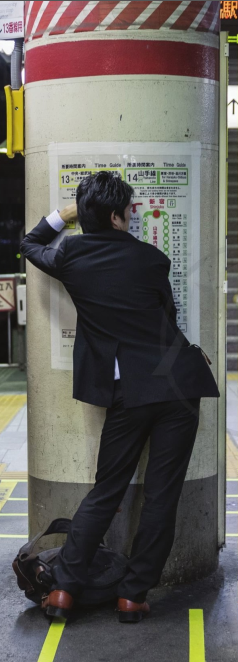(Page 118)
D GOAL Discuss the Importance of Sleep
Reading 🎧56 (Optional)
A Do you often look at a screen (e.g., a phone or laptop) before you go to sleep? Do you think it's bad for your health? Why?
B Read the article. Match the title to each paragraph.
a. A twenty-first century problem
b. The problem of light and screens
c. Why do we need to sleep?
C Read again. Answer each question. Circle Yes, No, or Doesn't say.
1. Is sleep good for our health? Yes No Doesn't say
2. Do we study and work better with eight hours of sleep? Yes No Doesn't say
3. Do Americans sleep less than people of other nationalities? Yes No Doesn't say
4. Does the movement of the sun affect our natural clock? Yes No Doesn't say
5. Does blue light affect our sleep? Yes No Doesn't say
6. Should we check our phones before we sleep? Yes No Doesn't say
7. Does the writer think we will take the advice of medical experts? Yes No Doesn't say
D Complete this summary using the words from the article.
Sleep is good for physical and (1) _______ mental health. It helps stop (2) _______ and keeps us healthy. We also study and work (3) _______ when we sleep for (4) _______ hours. But in the twenty-first century, we aren't getting enough sleep. One reason is that we stay up (5) _______ or (6) _______ all night. Another reason is that (7) _______ light from screens keeps us awake. As a result, medical experts advise us to stop looking at screens (8) _______ hour before bed.
✔️GOAL CHECK
In groups, prepare a presentation called "Why sleep is good for you."
1. List all the reasons why sleep is good for you. Use ideas from the article and add two of your own ideas.
2. Join another group and take turns giving your presentation. Did you give similar reasons? What was different?
(Page 119)
The Need for Sleep


This man is sleeping on a subway platform in Japan. The Japanese term inemuri means "sleeping while present." As people work more and get less sleep at night, this is more common.
______
Why do we sleep? One thing we do know is that it's good for our physical and mental health. Physically, sleep helps prevent sickness and keeps our body healthy. Mentally, we study and work better when we sleep for about eight hours the previous night.
______
In this century, lack of sleep is becoming a big problem. The average American sleeps less than seven hours a night-that's two hours less than a century ago. Our modern 24-hour-day lifestyle means that more and more of us are working at different times of the day-and night. We often stay up late into the night, and some of us even work all night and sleep during the day. This is a problem because our body's natural clock is connected with the movement of the sun. If we don't sleep at night for long periods, it can be bad for our health.
______
But perhaps the biggest problem comes from electric lights and screens. Modern cities use bright LED lights through the night, which changes the way we sleep. In addition, the screens of our computers, tablets, and smartphones all send out blue light. The bluer and brighter the light, the more difficult it is to get tired and go to sleep. As a result, some medical experts suggest that we shouldn't watch more than two hours of television per day, and that we should stop looking at screens (including phones) one hour before we go to bed. But how many of us will take this advice?
lack (adj) not enough (of something)
stay up (phrasal verb) not go to bed

























